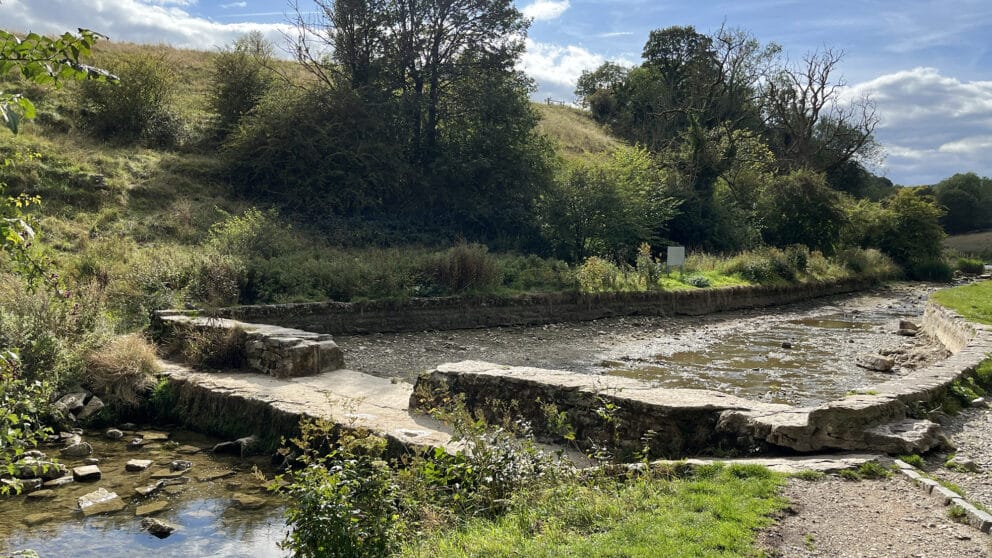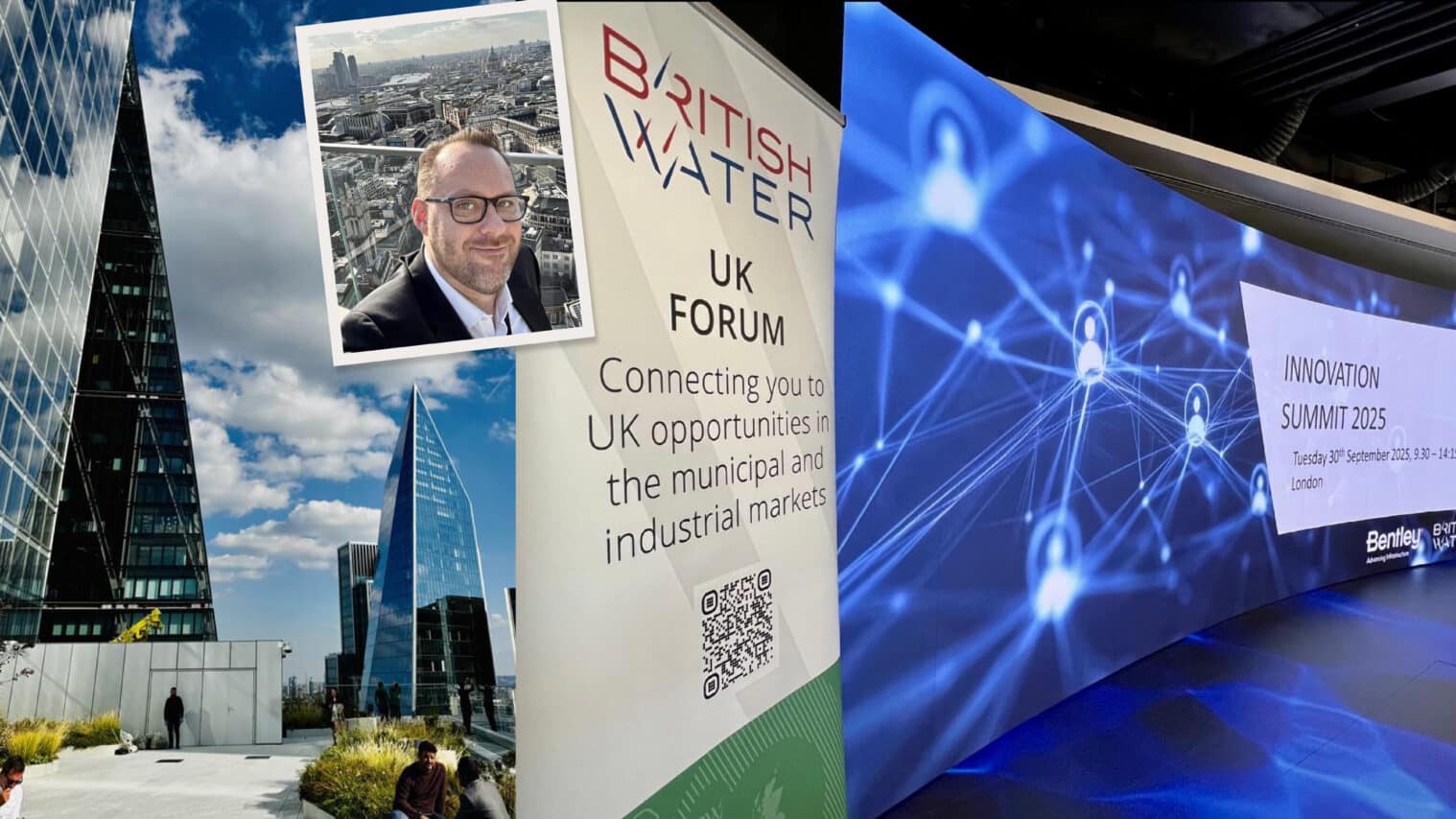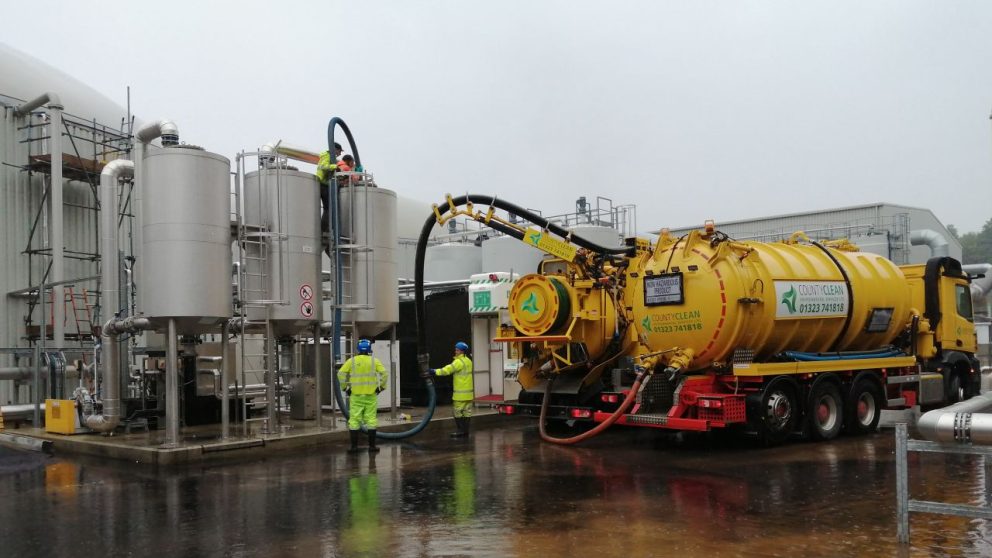
Driving sustainable solutions in Water
Using advanced trenchless methods Ipsum delivered a full-system rehabilitation to one of the Peak District’s most environmentally sensitive areas.
Read more
Standing on the 43rd Floor of 8 Bishopsgate, London, you can’t help but be impressed by the stunning view across central London. I’m guessing the venue was chosen intentionally, prompting us to aim high and ensure we take a broader view when assessing where we are on innovation, and what’s still to do.
Having been heavily involved in Innovation for a number of years, it’s a passion of mine. I’ve been fortunate enough to work for companies that value progress through innovation and give me the freedom and empowerment to help move us forwards.
I went into the Summit looking to understand where we are, what progress has been made, and what challenges remain.
The challenges are very clear. A 5000 megalitres (ML) per day long-term water supply shortfall, unacceptable levels of pollution and resource waste, political weaponisation of the sector, a shifting regulatory landscape, economic growth demanding innovation, and water companies facing ever-increasing pressure to raise their performance.
Listening to the presentations, panel sessions and Q&As, it’s clear that ideation is strong, and we continue to work our way through the blockers to progress. A few years ago, the message was:
“We need to bring more people and companies who innovate into the sector.”
So, we did. Then the feedback was:
“There isn’t enough funding, and we don’t understand how to engage to move things forward quickly and effectively.”
In response, we created funding routes and set up forums and technical groups to help navigate the world of water – from companies lacking digital expertise, to crafting good business cases, to navigating our legacy procurement practices.
What was clear from the Innovation Summit is that the biggest barrier to progress now is scaling adoption. Time to full-scale implementation is measured in decades, not years. Asset owners operate within a risk envelope that cannot accommodate failure or unproven solutions at scale, and the regulatory regime does too little to encourage speed to value or allow flexibility to pivot towards new approaches.
These views were echoed by several prominent UK water industry innovation leaders. While incredibly frustrating, it’s also somewhat understandable. Faced with the toughest delivery programme in the history of our privatised water industry, companies must focus on execution: delivering the plan to time, within budget and to the required quality. Distractions cost time and create slippage. We also have a regulator with no real incentive to drive change. As a result of the Cunliffe Review, Ofwat is effectively serving its notice period, and with the rules of the game set to change, they are likely to tread water until the new regime takes over.
A powerful observation from the stage was to:
“Find the advocates, the likeminded and the brave in the organisations and work with them to move things forward.”
This means that, as a water community, it is up to us to drive change and progress from the ground up. What I see across our work with many water companies – and hear from clients – is that there are real opportunities to introduce innovation and scale it up in a measured way, proving our value as we go. This largely relies on the trust built up over time, as well as the continued validation of us as industry specialists, experts and entrepreneurial problem solvers – through the work we deliver day in, day out.
Innovation is a key driver at Ipsum, with our focus on applying smarter thinking to work faster, safer and sustainably, while also solving problems across the industry.
Our Ipsum.live digital ecosystem is transforming how we approach asset data capture and management. Through a combination of field technologies, like LiDAR scanning, sensor data capture and our in-house asset performance platform, Ipsum.live Assets, we’re giving clients a true understanding of the health and performance of their systems.
We’ve also partnered exclusively with world-leading solution providers, such as OBIC, whose Armor System offers a fast, easy and cost-effective method for extending asset life and repairing and preventing damage. Ipsum is the exclusive delivery partner for the UK and Channel Islands, giving our clients early access to this solution.
We’re also working with Sanivar and its Neofit+Plus product to replace lead house connections and leaking water pipes in a way that is fast and non-invasive to residents.
Yes, the same old problems persist, and the broader landscape isn’t in our favour right now. But maybe we can build from the bottom, creating a foundation of case studies, advocates and routes to market that enable real progress. It may not be as fast as we’d like, but it will be better than what we currently have. Water 4.0 is coming, and we mustn’t lose our drive to get there – to build an agile, progressive sector that’s equipped to meet the big challenges ahead and deliver a more water-secure future for our families and our planet.

Using advanced trenchless methods Ipsum delivered a full-system rehabilitation to one of the Peak District’s most environmentally sensitive areas.
Read more
Specialist engineering services provider, Ipsum Group, has kickstarted 2026 with acquisition of leading liquid waste management business, CountyClean Group.
Read more
Ipsum was among the front runners at the recent 2025 UKSTT Awards, a national celebration of excellence in trenchless technology.
Read more